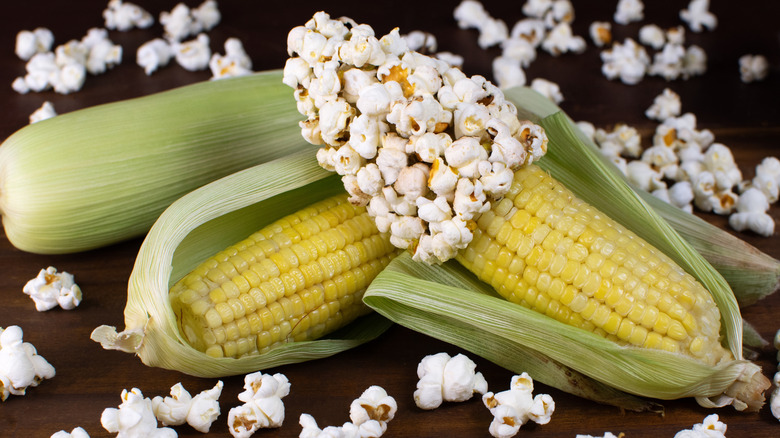You’ve probably seen produce such as tomatoes described as “heirloom” before, but have you ever thought about what the term really means? A family heirloom refers to something that’s been passed down through generations, and surprisingly, the concept works much the same with fruits and vegetables. Heirloom tomatoes, like the sought-after Cherokee Purple, aren’t just especially vibrant and juicy by chance — they’re grown from seeds that have been open-pollinated and preserved, often by family farmers, for over 70 years. Basically, heirloom produce encapsulates a wide variety of “designer” strains that promote biodiversity and offer naturally big flavor, and they’re not just limited to tomatoes. There’s even heirloom popcorn, for anyone who wants to do some extra-special snacking.
Heirloom popcorn is exactly what it sounds like. The corn is grown from old strains of seeds, which have been cultivated for decades (sometimes even centuries) and produce ears that are smaller yet more flavorful and nutritious than those turned into mass-produced popcorn kernels. The farmers behind heirloom popcorn describe it as sweeter and more complex than the nearly flavorless popcorn we’re used to eating as an iconic movie theater snack, which requires lots of butter, salt, and seasonings to liven it up. Though the market for heirloom popcorn is still small compared to the overall popcorn sector, it has won over plenty of devotees and emerged as a premier artisanal snack.
Heirloom popcorn delivers big benefits in a small package
Though we can’t exactly classify all popcorn as health food, it is considered one of the best low-calorie snacks that still satisfies our desire for a salty, crunchy bite — especially if you go easy on the oil (as much as we enjoy bathing popcorn in bacon grease). Heirloom popcorn only amplifies the nutrition factor and reduces the need to add calorie-dense oils and sugars. Heirloom popcorn varieties are non-GMO by definition and are rich in essential vitamins. Leading heirloom popcorn brand Tiny But Mighty claims that “heirloom varieties are kept the way nature intended them to be, therefore they are a cornerstone of clean eating.”
Another distinguishing advantage of heirloom popcorn is that it won’t get stuck in your teeth. That’s because the kernels’ hulls (their hard surrounding shells) are practically nonexistent once popped. The ears of heirloom popcorn tend to be small — about half the size of a regular ear in the case of Tiny But Mighty — but denser in flavor.
There are a handful of companies leading the heirloom popcorn charge, including Tiny But Mighty, which are concentrated in Midwestern states like Iowa, which grows the most corn in the U.S., and Illinois, where popcorn is the state’s official snack food. The drawbacks of heirloom popcorn — its higher cost and smaller kernels — may keep it from dominating the mass market, but for snackers who appreciate produce rich in history and quality, it’s a must-try.






